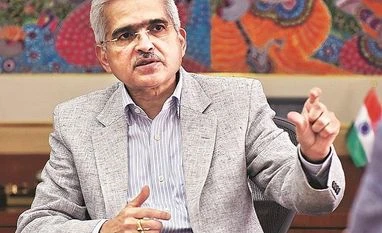Banks must shed their extreme risk aversion and focus more on risk management and the quality of decision making to remain resilient in a challenging financial environment, Reserve Bank of India (RBI) Governor Shaktikanta Das said on Thursday in his keynote address at the virtual Business Standard conclave Unlock BFSI 2.0.
“Remaining overly risk-averse may seem to be a measure of self-immunisation; but will be self-defeating as it would affect the bottom line adversely,” the governor said.
Among the causes of weakness in banks are an inappropriate business model, given the business environment; quality or the lack of governance and decision making; and misaligning internal incentive structures with external shareholder stakeholder interests, according to the RBI governor.
“Accordingly, the core of resilient banks is made up of good governance, effective risk management, and robust internal controls.”
The measures taken by the RBI to mitigate Covid stress cannot be permanent, Das alerted. Those initiatives – in the form of liquidity, monetary, regulatory, and supervisory measures; interest rate cuts; a moratorium on debt servicing; asset classification standstill; and special resolution window – have to be wound down in an orderly fashion.
“Post containment of Covid, a very careful trajectory needs to be followed for orderly unwinding of the various counter-cyclical measures taken by the RBI and the financial sector should return to normal functioning without relying on the regulatory relaxations and other measures as the new norm,” Das said, adding it would be a very “cautious exit plan,” with a long-term view of resolutions and measures.
The RBI still has firepower left and will step in when the situation demands.
“We have not exhausted our policy options, whether (on) rate cuts or … any other aspect of central banking. We have not exhausted our instruments or ammunitions. What the MPC (monetary policy committee) minutes (of August 6 policy) have said is that the decision of the MPC was to keep the gunpowder dry.”
The rate cuts have had their desired impact and some of it is still playing out. “As RBI, our endeavour is to ensure all segments of the financial markets, including bond and the currency markets, function in an efficient and stable manner. We are constantly watchful, extremely watchful and as and when we anticipate emerging situations, we will deal with it,” the governor said in his fireside chat.
“What measures we will take I cannot spell out. But our responsibility is that there should be orderly, non-disruptive borrowing by the government,” Das said.
The RBI is monitoring the situation at home and abroad, and the financial sector.
“The RBI takes a long-term view, and not just for tomorrow. We do think about today, tomorrow, and also one or two years ahead,” the governor said.
The RBI has given enough forward guidance, but until there is some certainty on the Covid prognosis, giving guidance on inflation and growth would be difficult.
“Times are very uncertain. The situation keeps changing very fast. Any number you put out, there is no absolute certainty that it will not change one month down the line,” the RBI governor said. “When a central bank gives out a number, it has to be very responsible, we cannot change it one or two months later. Once there is some amount of certainty in the Covid-19 curve, the RBI will certainly give out numbers,” Das said, adding that the RBI was deliberating on this issue.
According to Das, the composition of the new MPC is the prerogative of the government, but “conflict of interest has to be taken into consideration”. The RBI governor is part of the selection panel. Banks must look at “sunrise” sectors while supporting those that have the potential to bounce back. The rural sector remains unexplored despite efforts to support it, while start-ups, renewables, logistics, value chains and other such potential areas should be given attention.
“The banking sector has a responsible role to play not only as a facilitator of growth of the economy but also to earn its own bread. Thus, a complete relook at the business strategy and orientation is the immediate need of the hour.”
The current pandemic-related shock has put greater pressure on banks’ balance sheet, and this may lead to an erosion of their capital. Banks must respond to the situation quickly and start raising capital. “Proactive building of buffers and raising capital will be crucial not only to ensure credit flow but also to build resilience in the financial system - resilience of individual banks and financial entities as well as resilience of the financial sector as a whole,” the RBI governor said.
Watch: Unlock BFSI 2.0: Banking — Capital is the key Unlock 30+ premium stories daily hand-picked by our editors, across devices on browser and app.
Pick your 5 favourite companies, get a daily email with all news updates on them.
Full access to our intuitive epaper - clip, save, share articles from any device; newspaper archives from 2006.
Preferential invites to Business Standard events.
Curated newsletters on markets, personal finance, policy & politics, start-ups, technology, and more.
)